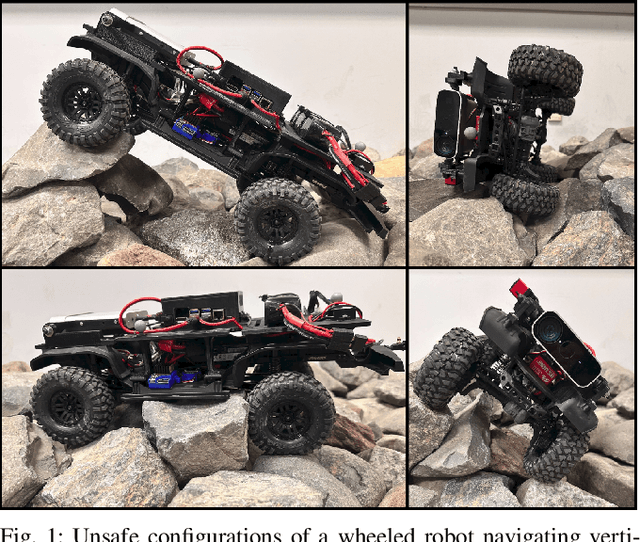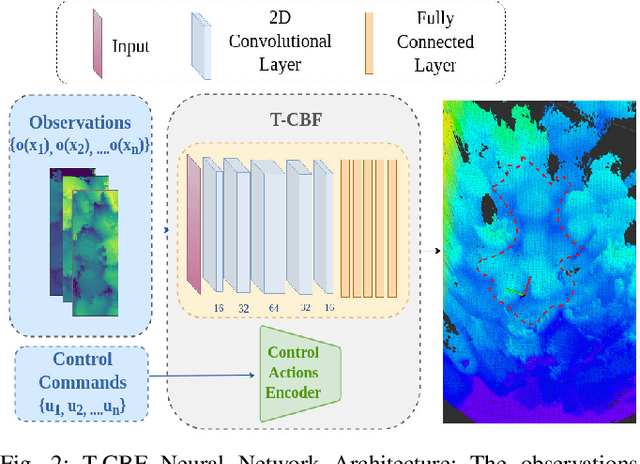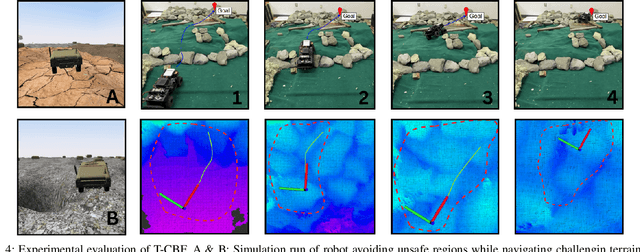T-CBF: Traversability-based Control Barrier Function to Navigate Vertically Challenging Terrain
Paper and Code
Mar 08, 2025



Safety has been of paramount importance in motion planning and control techniques and is an active area of research in the past few years. Most safety research for mobile robots target at maintaining safety with the notion of collision avoidance. However, safety goes beyond just avoiding collisions, especially when robots have to navigate unstructured, vertically challenging, off-road terrain, where vehicle rollover and immobilization is as critical as collisions. In this work, we introduce a novel Traversability-based Control Barrier Function (T-CBF), in which we use neural Control Barrier Functions (CBFs) to achieve safety beyond collision avoidance on unstructured vertically challenging terrain by reasoning about new safety aspects in terms of traversability. The neural T-CBF trained on safe and unsafe observations specific to traversability safety is then used to generate safe trajectories. Furthermore, we present experimental results in simulation and on a physical Verti-4 Wheeler (V4W) platform, demonstrating that T-CBF can provide traversability safety while reaching the goal position. T-CBF planner outperforms previously developed planners by 30\% in terms of keeping the robot safe and mobile when navigating on real world vertically challenging terrain.
 Add to Chrome
Add to Chrome Add to Firefox
Add to Firefox Add to Edge
Add to Edge